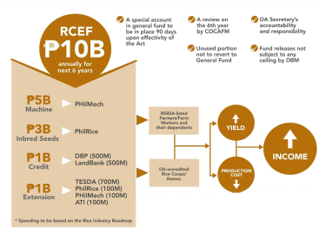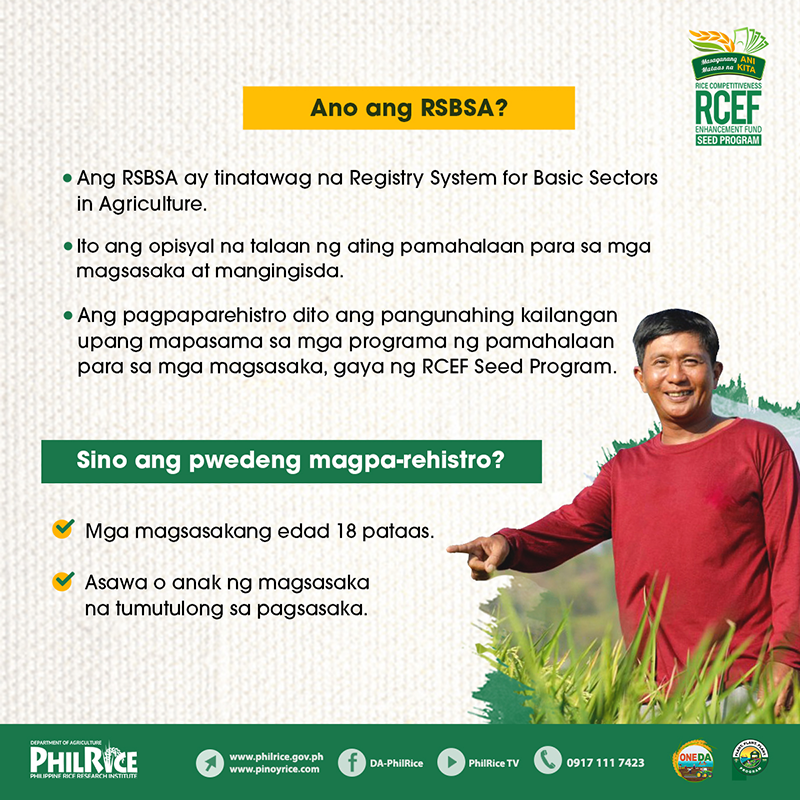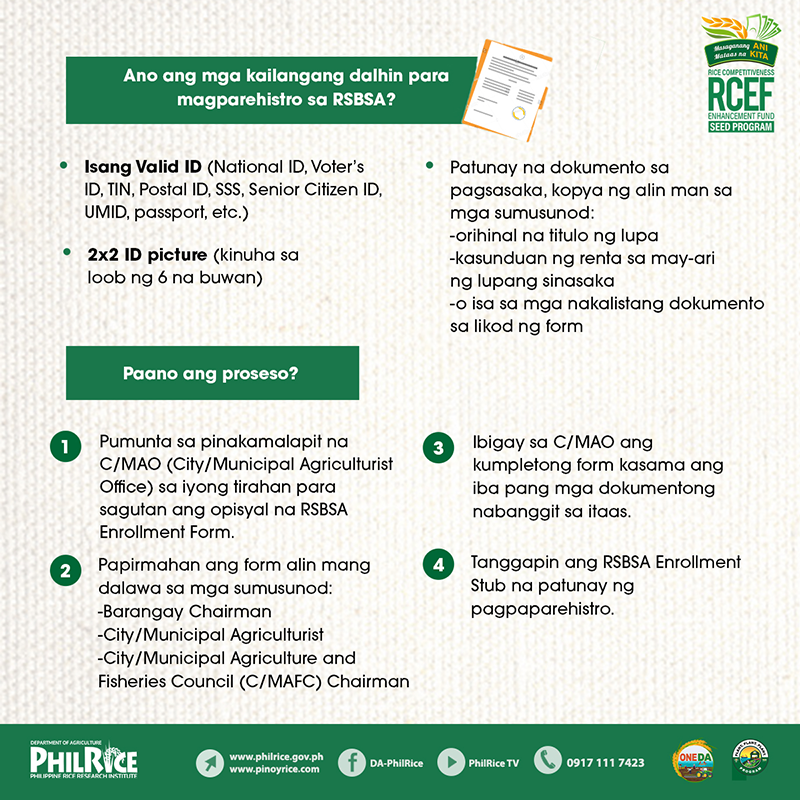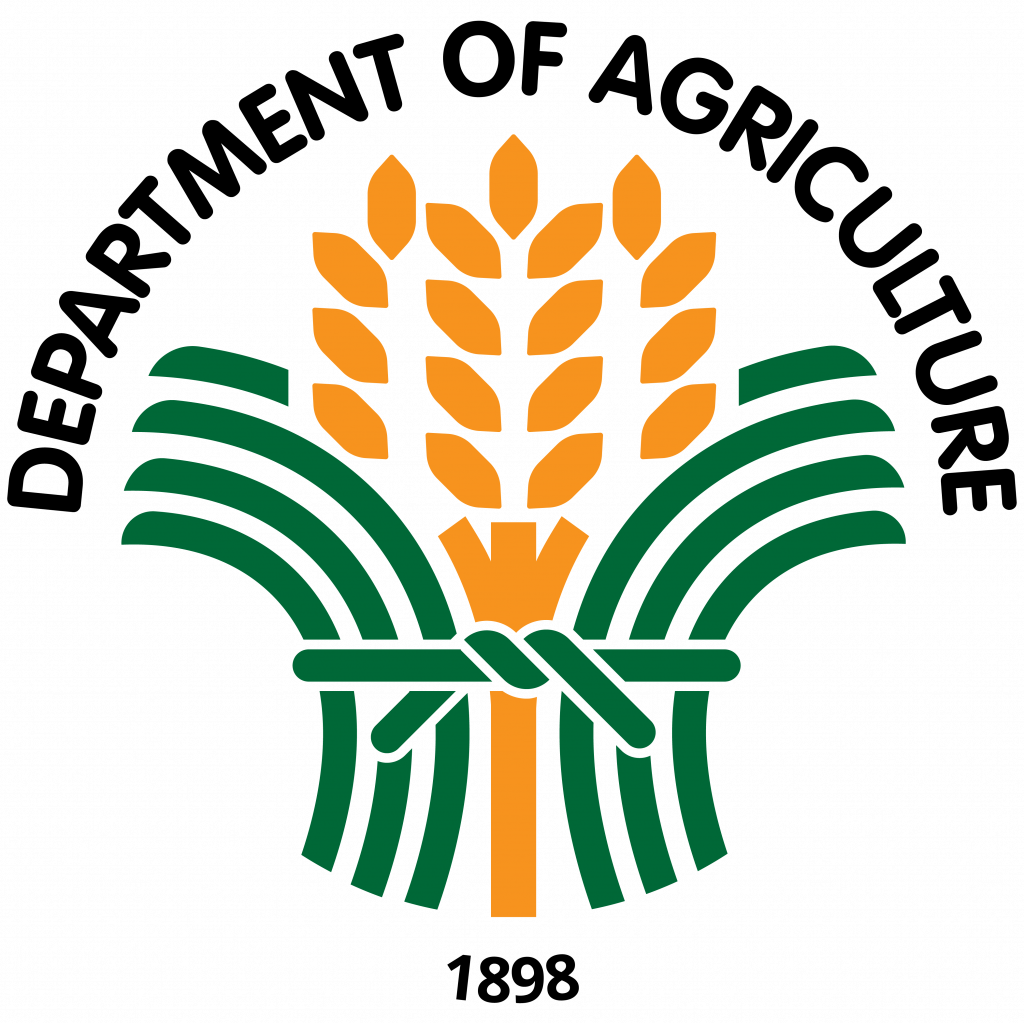What is the RA 11203 or Rice Tariffication Law?
The Philippines lifted its quantitative restrictions on imported rice as part of the country’s obligation to the World Trade Organization (WTO), which the country has been a member of since 1995. For 22 years, the WTO had allowed the Philippines to limit the entry of rice imports as the country prepares its farmers for international competition. The intergovernmental organization had granted several extensions for special treatment on rice until it expired in June 2017.
Republic Act 11203 has created the Rice Competitiveness Enhancement Fund (Rice Fund) to improve the competitiveness of rice farmers and increase their income amidst liberalization of the Philippine rice trade policy including, among other provisions, the lifting of quantitative restriction on rice import and replacing it with tariff. The Rice Fund establishes the Rice Competitiveness Enhancement Program (RCEP) which aims to complement and supplement the existing Department of Agriculture – National Rice Program (DA-NRP).
The RCEP has four key components: 1) rice farm mechanization; 2) inbred rice seed development, propagation, and promotion; 3) expanded rice credit assistance; and 4) rice extension services. The implementation of these components shall be integrated and consistent with the existing DA interventions.
Further, Section 13.d allocates 10% of the Rice Fund on extension services as follows: 10% each for PhilRice, Philippine Center for Postharvest and Mechanization (PHilMech), and Agricultural Training Institute (ATI), and 70% for Technical Education and Skills Development Authority (TESDA), for teaching skills on rice crop production, modern rice farming techniques, seed production, farm mechanization, and knowledge/technology transfer through farm schools nationwide.
During the senate budget hearing for the Department of Agriculture, a senate joint resolution introduced by Sen. Cynthia Villar was approved. The said resolution authorized the use of excess collection of the Bureau of Customs for the year 2020 under the Rice Tariffication Law as cash assistance for the rice farmers to be included in the General Appropriations Act (GAA) of 2021.
What are the key components of RA 11203?
- Allows the private sector to freely import rice subject to a tariff.
- Removes the regulatory and import licensing functions of the National Food Authority (NFA).
- Requires importers to obtain Sanitary and Phytosanitary Import Clearance (SPSIC) to be issued by the Department of Agriculture – Bureau of Plant Industry (DA-BPI) to protect our agriculture and consumers from diseases, pests, or contaminants.
- Reduces the mandate of the NFA to emergency buffer stocking of rice that will be sourced solely from local farmers.
- Shifts to a purely tariff system with the following rates:
- 35% if rice is imported within ASEAN
- 40% if within the MAV of 350,000mt for imports coming from countries outside of ASEAN
- 180% if above the MAV and from non-ASEAN countries
- 35% if rice is imported within ASEAN
- 40% if within the MAV of 350,000mt for imports coming from countries outside of ASEAN
- 180% if above the MAV and from non-ASEAN countries
- Creates the Rice Competitiveness Enhancement Fund (RCEF) or Rice Fund with a P10 billion annual appropriation for the next six years to be allocated and disbursed as follows:
- Rice farm machinery and equipment (50%) – will be released to and implemented by the Philippine Center for Postharvest Development and Mechanization (PhilMech)
- Rice seed development, propagation, and promotion (30%) – will be released to and implemented by the Philippine Rice Research Institute (PhilRice)
- Expanded rice credit assistance (10%) – will be made available in the form of a credit facility with minimal interest rates and minimum collateral requirements to rice farmers and cooperatives to be managed equally by the Land Bank of the Philippines (LBP) and the Development Bank of the Philippines (DBP)
- Rice extension services (10%) – will be made available for extension services provided by the PhilMech, PhilRice, Agricultural Training Institute (ATI), and Technical Education and Skills Development Authority (TESDA).

- Tariff revenues in excess of the P10 billion annual appropriation will be earmarked for the Rice farmer financial assistance.
How to be a beneficiary?
Register to RSBSA then contact the program Implementing Agenciess.


